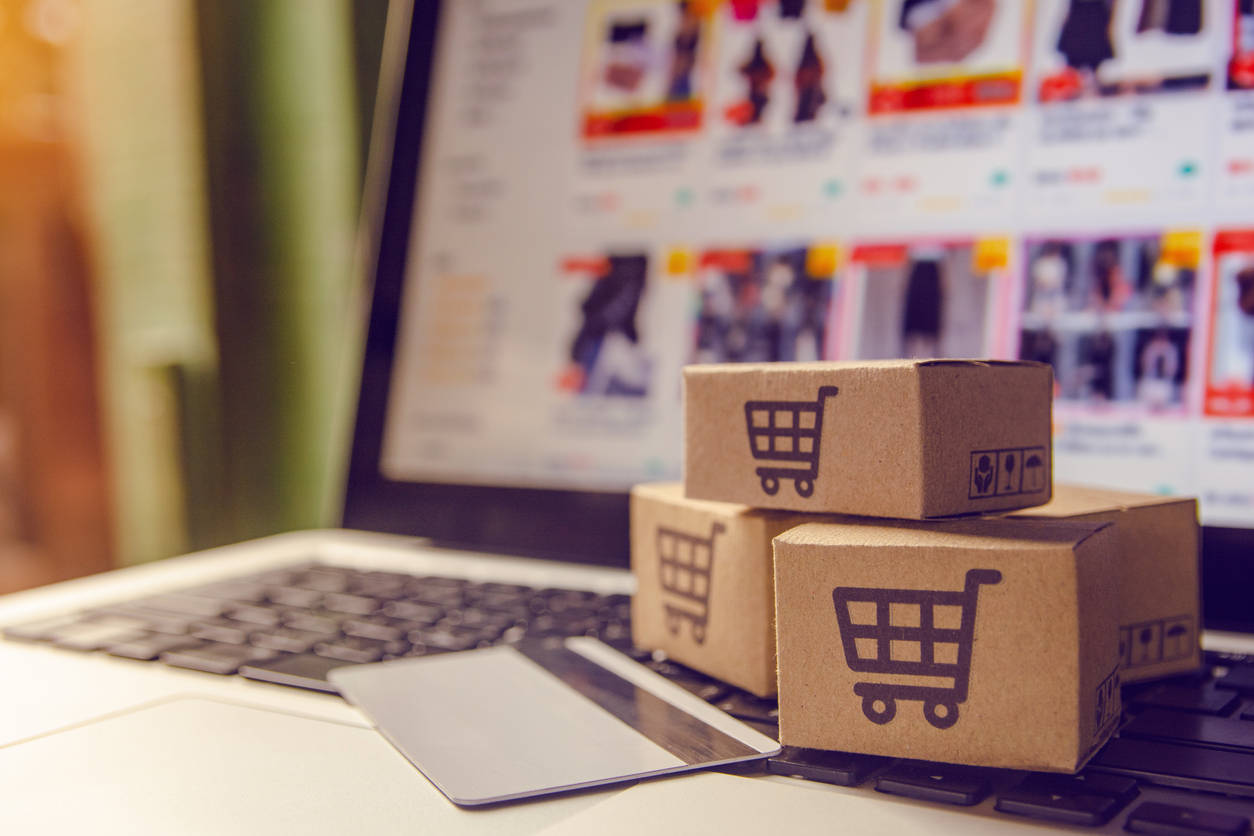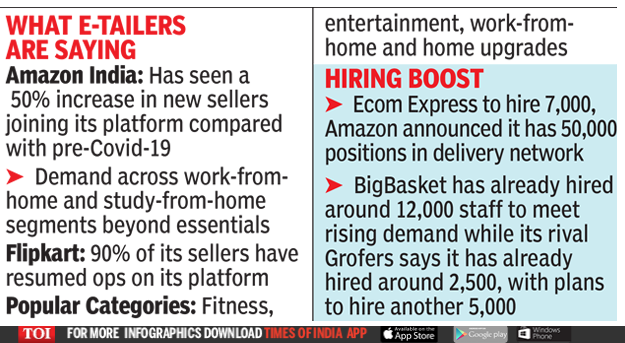 E-commerce companies have not just recovered, but surpassed pre-Covid-level sales as more people shop online due to the pandemic.
E-commerce companies have not just recovered, but surpassed pre-Covid-level sales as more people shop online due to the pandemic.
The daily shipment volumes are back at over 3 million per day with visible signs of demand holding firm over the next couple of months, with people continuing to limit their visits to physical stores, according to over half a dozen industry executives TOI spoke to.
For instance, platforms like Amazon India and Flipkart are seeing 120%-140% growth in their shipments, surpassing January-February numbers, showing the pandemic has accelerated the adoption of online shopping in India. This means on top of the recovery from lows of April, when only essentials were allowed to be sold online resulting in business falling by 80-90%, e-tailers are now clocking higher sales than what they did before the virus outbreak.
E-commerce created new jobs on sharp recovery
To be sure, e-tailers did lose out on sales to the tune of at least $1 billion as they were largely selling groceries from the last week of March until the middle of May, when restrictions on non-essentials were eased.

The sharp recovery has also led to the sector largely being able to create new jobs, instead of layoffs which are becoming common in offline retail. For example, Ecom Express – a third-party delivery firm – is looking to add about 7,000 people, its co-founder T A Krishnan said.
The spike in online shopping is not just limited to giants like Amazon India, but multiple vertical e-commerce platforms selling grocery, kidswear, and furniture are seeing higher sales too. The average basket size for these purchases, depending on the segment, like tables or office chairs, has increased or nearly doubled too.
“The volumes are back to pre-Covid levels. Customers would still be wary of going to markets or malls to buy things. Till the Covid-19 situation stays, there will be a new shift towards online shopping and that’s already happening. The uptake is at a different level,” said Krishnan.
According to him, the industry is now seeing upwards of 3 million shipments daily. Backed by private equity firm Warburg Pincus, Ecom Express has about 33,000 employees, of whom 90% are “frontline” workers in delivery-and-supply chain.
A top executive of another delivery service said he has recently seen a higher volume of orders for mobiles and other electronics that largely come from China due to apprehension of supply shortage owing to geo-political reasons. While e-tailers are known for discounts, the current situation has brought it down to the minimum.
Customer acquisition cost is also at its lowest, these people said, as companies have significantly cut their marketing and advertisement expenditures across platforms.
Flipkart and Amazon India did not reply to specific queries on shipment growth by TOI, but executives at these companies who did not wish to be named confirmed the numbers.
The bounce back is not only due to existing customers transacting more or buying across more categories, but also due to a new set of users transacting online. “On a sustainable basis, online penetration will go up by around 50%, which is even 100% in the short-term. In a lot of categories, there will be a 40-50% spike in consumers who will stay on post-Covid-19,” said Ankur Pahwa, partner and national leader (e-commerce and consumer internet), EY India. Last year, around 140-150 million users transacted at least once online.
The pandemic’s effect on e-commerce is further visible for segments like fashion, a segment that will take longer to recover–even online. But brands see the contribution of e-commerce to overall sales now rising, even as many are shutting down physical stores.
“E-commerce has seen increased positive traction and accelerated bounce back when consumers have health and safety concerns for stepping out when cases are increasing exponentially. Ultimately, it will change shopping habits and some of it will definitely be irreversible,” said Sanjeev Mohanty, MD, South Asia, Middle East and North Africa, Levi’s. It expects its e-commerce contribution to nearly double in the near term, he said.
Leave a Reply